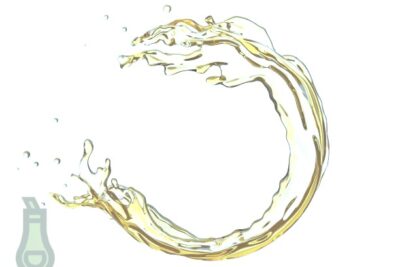
Descubre los secretos deliciosos del aceite de oliva para mejorar tu salud cardiovascular

- Discover the Delicious Secrets of Olive Oil for Improving Your Cardiovascular Health
- Unveiling the Hidden Benefits of Olive Oil for a Healthy Heart
- The Ultimate Guide to Boosting Your Cardiovascular Health with Olive Oil
- Unlocking the Delicious Secrets of Olive Oil to Enhance Heart Health
- Optimize Your Cardiovascular Well-being with Delicious Olive Oil Secrets
- The Power of Olive Oil: Secrets Revealed for a Healthy Heart
Discover the Delicious Secrets of Olive Oil for Improving Your Cardiovascular Health
Olive oil has long been prized for its delicious taste and versatility in cooking, but did you know that it also has numerous health benefits for your cardiovascular system? This incredible oil is rich in monounsaturated fats, which are known to reduce levels of LDL cholesterol, the "bad" cholesterol that can contribute to heart disease and stroke.
In addition to its heart-healthy properties, olive oil is also full of antioxidants, which help to protect your cells from damage caused by free radicals. These antioxidants have been linked to a decreased risk of chronic diseases, including heart disease. Incorporating olive oil into your diet can also help to reduce inflammation in your body, which is a major contributor to heart disease.
Tips for incorporating olive oil into your diet:
- Use olive oil as a replacement for butter or margarine when cooking or baking.
- Drizzle olive oil over salads as a healthy and flavorful alternative to high-fat dressings.
- Try dipping bread in olive oil infused with herbs and spices for a delicious and heart-healthy appetizer.
Advantages:
- Reduces LDL cholesterol levels
- Rich in antioxidants
- Decreases inflammation in the body
Disadvantages:
- Olive oil is high in calories, so it should be used in moderation.
- Some varieties of olive oil may be more expensive than other cooking oils.
Olive oil has long been a staple in Mediterranean cuisine, but its benefits extend far beyond its delicious taste. Studies have shown that incorporating olive oil into your diet can have a multitude of positive effects on heart health.
One of the main reasons olive oil is good for the heart is its high concentration of monounsaturated fats. These healthy fats can help reduce bad cholesterol levels, which in turn lowers the risk of heart disease and stroke. Additionally, olive oil is rich in antioxidants, which can help prevent the oxidation of LDL cholesterol particles, further protecting against cardiovascular problems.
The Ultimate Guide to Boosting Your Cardiovascular Health with Olive Oil
Introduction: The Benefits of Olive Oil for Your Heart
Olive oil has long been celebrated for its numerous health benefits, particularly when it comes to cardiovascular health. Studies have shown that incorporating olive oil into your daily diet can have a positive impact on your heart health, reducing the risk of heart disease and improving overall cardiovascular function.
One of the main reasons why olive oil is considered beneficial for the heart is its high content of monounsaturated fats. These healthy fats help to reduce bad cholesterol levels (LDL) while increasing good cholesterol (HDL), effectively promoting a healthier heart. Additionally, olive oil contains antioxidants, such as polyphenols, which have been linked to reducing inflammation and protecting the blood vessels from damage.
Tips for Incorporating Olive Oil into Your Diet
Now that you know the potential cardiovascular benefits of olive oil, here are some tips for incorporating it into your diet:
- Replace butter or margarine with olive oil when cooking or baking.
- Use olive oil as a dressing for salads instead of high-fat dressings.
- Drizzle olive oil over vegetables before roasting them for a healthy and flavorful side dish.
- Include olive oil in your homemade marinades for grilled meats or vegetables.
Advantages and Disadvantages of Olive Oil for Cardiovascular Health
Like any food, olive oil has both advantages and disadvantages when it comes to cardiovascular health. On the positive side, olive oil is a healthier alternative to saturated fats, which are known to increase the risk of heart disease. Additionally, the antioxidants in olive oil can help reduce inflammation and oxidative stress in the arteries, promoting better cardiovascular health.
However, it's important to note that olive oil is still a fat and should be consumed in moderation. While it is a healthier fat option, excessive consumption can still lead to weight gain, which is a risk factor for heart disease. Therefore, it's crucial to incorporate olive oil into a balanced diet and not exceed the recommended daily intake.
Unlocking the Delicious Secrets of Olive Oil to Enhance Heart Health
Did you know that olive oil has been prized for centuries not only for its rich flavor but also for its numerous health benefits? Olive oil is a staple of the Mediterranean diet, which is known for promoting heart health and longevity. In fact, research has shown that incorporating olive oil into your diet can help reduce the risk of heart disease and improve overall cardiovascular health.
One of the key reasons why olive oil is beneficial for heart health is its high content of monounsaturated fats, specifically oleic acid. This type of fat can help to lower bad cholesterol levels and raise good cholesterol levels, creating a healthier balance in your body. Additionally, olive oil is packed with antioxidants that can help protect your heart and blood vessels from oxidative stress and inflammation.
Advantages of Olive Oil:
- Rich in monounsaturated fats that promote heart health.
- Contains antioxidants that protect against oxidative stress and inflammation.
- May help improve blood clotting and reduce the risk of heart disease.
Disadvantages of Olive Oil:
- High in calories, so it's important to moderate your intake.
- Not suitable for high-temperature cooking as it has a low smoke point.
- Extra virgin olive oil can be more expensive than other types of cooking oils.
Optimize Your Cardiovascular Well-being with Delicious Olive Oil Secrets
When it comes to heart-healthy choices, olive oil often takes center stage. Found at the heart of the Mediterranean diet, this delicious golden liquid is not only a staple in culinary traditions but also a secret to maintaining cardiovascular well-being.
One of the main benefits of incorporating olive oil into your diet is its ability to reduce the risk of heart disease. It contains monounsaturated fats that help lower bad cholesterol levels, also known as LDL cholesterol, while increasing good cholesterol levels, known as HDL cholesterol. By doing so, olive oil helps maintain clear arteries and prevents plaque buildup, reducing the chances of heart attacks and strokes.
Furthermore, olive oil is rich in antioxidants, particularly vitamin E, which helps protect cells against damage caused by free radicals. This can have a positive impact on blood pressure, as well as overall cardiovascular health. Additionally, studies have shown that olive oil has anti-inflammatory properties, reducing inflammation and the risk of chronic diseases related to cardiovascular health.
Tips for Incorporating Olive Oil into Your Diet:
- Use olive oil as a dressing for salads instead of commercial salad dressings that may contain unhealthy fats.
- Replace butter or margarine with olive oil when cooking or baking.
- Drizzle olive oil over steamed vegetables or grilled meats for extra flavor and heart-healthy benefits.
Advantages:
- Reduces the risk of heart disease by lowering LDL cholesterol levels.
- Increases the levels of HDL cholesterol, which is beneficial for heart health.
- Contains antioxidants that protect against cell damage and inflammation.
Disadvantages:
- Olive oil is still high in calories, so it should be consumed in moderation as part of a balanced diet.
- Some people may be allergic to olive oil, so it's important to consider individual sensitivities.
The Power of Olive Oil: Secrets Revealed for a Healthy Heart
When it comes to keeping our hearts healthy, there is a hidden secret that has been used for centuries: olive oil. This powerful oil, extracted from the fruit of the olive tree, has been renowned for its numerous health benefits, particularly for cardiovascular health.
Olive oil is rich in monounsaturated fats, which are known to reduce levels of bad cholesterol, or LDL, in the blood. *Consuming olive oil regularly can help lower the risk of heart disease and stroke. Additionally, this liquid gold is packed with antioxidants, like polyphenols and vitamin E, which can help protect the heart from oxidative stress and inflammation.
Advantages
One of the advantages of olive oil is its versatility. It can be used in various cooking methods, such as sautéing, roasting, or even drizzling over salads. Its distinctive flavor enhances the taste of dishes, making them more enjoyable. Moreover, olive oil is a key component of the Mediterranean diet, which has been associated with numerous health benefits, including a reduced risk of heart disease.
Disadvantages
While olive oil offers many advantages, it is important to note that it is still a high-calorie food. Consuming excessive amounts can lead to weight gain or obesity, which in turn can increase the risk of heart disease. It is crucial to consume olive oil in moderation as part of a balanced diet.
Si quieres conocer otros artículos parecidos a Descubre los secretos deliciosos del aceite de oliva para mejorar tu salud cardiovascular puedes visitar la categoría Alimentación.





